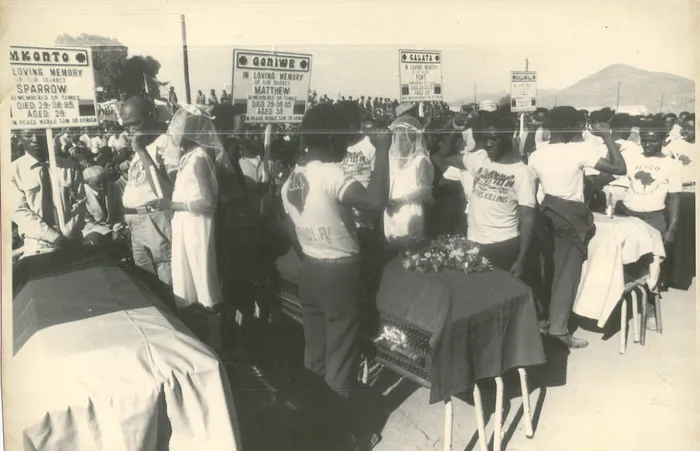Cradock Four inquest begins in Gqeberha as families seek long-awaited justice
Third official inquiry

The Cradock Four were abducted and murdered during the apartheid regime’s crackdown on political dissent. Their charred bodies were discovered near Port Elizabeth (now Gqeberha) in June 1985, sparking national outrage and international condemnation.
Image: File picture
After nearly four decades of unanswered questions, the latest inquest into the deaths of the Cradock Four has officially begun in the Eastern Cape city of Gqeberha. The families of Fort Calata, Matthew Goniwe, Sparrow Mkhonto, and Sicelo Mhlauli are hoping this renewed legal process will finally bring accountability for the brutal killings of the four anti-apartheid activists in 1985.
This marks the third official inquiry into the high-profile case, which has long symbolised the struggle for justice in post-apartheid South Africa. While previous investigations have pointed to police involvement, no one has ever been held criminally responsible.
The Cradock Four were abducted and murdered during the apartheid regime’s crackdown on political dissent. Their charred bodies were discovered near Port Elizabeth (now Gqeberha) in June 1985, sparking national outrage and international condemnation.
The first inquest in 1987 concluded that the men were killed by “unknown persons,” despite strong suspicions of police involvement. A second inquest, held in 1994 during the early days of South Africa’s democracy, went further, determining that security forces were responsible — but still did not identify individual perpetrators.
Six former apartheid-era security policemen later applied for amnesty before the Truth and Reconciliation Commission (TRC), but their applications were denied due to a lack of full disclosure. Despite this, no prosecutions followed.
The renewed inquest, now underway, is the result of years of lobbying by the victims’ families and civil society groups demanding justice. Legal experts say the new proceedings could pave the way for criminal prosecutions, especially if the court identifies suspects and recommends charges.
Justice Minister Mmamoloko Kubayi is expected to attend the opening of the inquest, signalling the government’s renewed commitment to resolving apartheid-era crimes that have lingered unresolved for decades.
“For years, we’ve been waiting to hear the truth — not from commissions or rumours, but from a court of law,” said Lukhanyo Calata, the son of Fort Calata. “We want to know who gave the orders, who pulled the triggers, and why justice has been delayed for so long.”
The National Prosecuting Authority (NPA) has faced criticism for its slow pace in addressing cases referred to it by the TRC more than 20 years ago. Many of those accused in apartheid-era crimes are now elderly, and some have died, further complicating prosecutions.
However, rights advocates say it’s not too late. “This inquest is not just about the Cradock Four,” said Yasmin Sooka, director of the Foundation for Human Rights. “It’s about showing that justice in South Africa is not bound by time or political convenience.”
The inquest is expected to run into next year, with court sessions featuring testimony from witnesses, former police officials, and experts. Families remain hopeful that this time, the process will lead to more than just historical clarification, but real accountability.
“This is not about revenge,” said Sello Mhlauli, son of Sicelo Mhlauli. “It’s about truth and dignity for our fathers, and for the country.”
